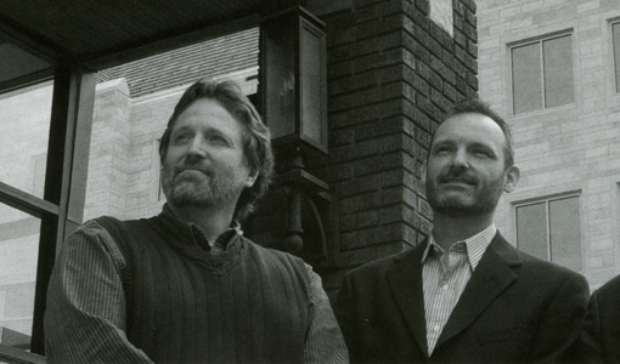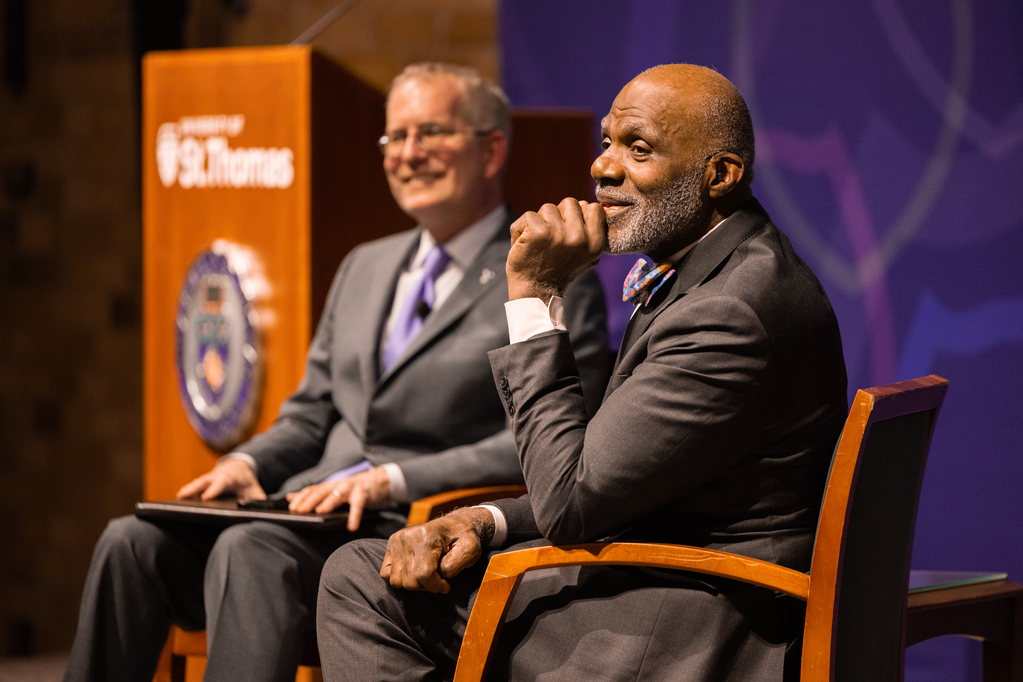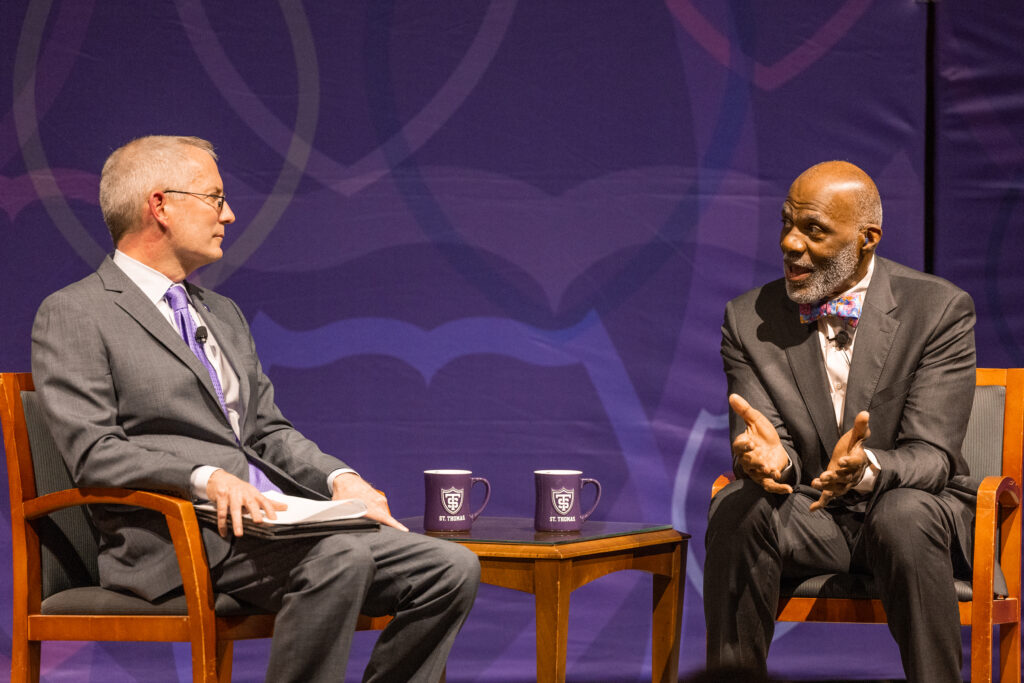During the past year, the University of St. Thomas community engaged in a sustained reflection on our identity and vocation as a Catholic institution of higher learning. The experience of a year of dialogue among students, faculty, staff and alumni put us more deeply in touch with our core values.
The revised statement of mission, convictions and vision that you find on these pages is a new articulation of these understandings. While our fundamental values haven't changed, the statement sharpens the focus of what we do (mission), why we do it (convictions) and what our hopes are for the future (vision).
I like the mission statement because it concisely states our purpose for being. Our Catholic intellectual tradition is our most distinctive characteristic, informing and permeating everything we do. As an institution that values both faith and reason, we seek to educate the whole person – body, mind and spirit. Our traditional strengths in integrating the liberal arts and career education develop persons who are critical thinkers, morally sensitive and vocationally prepared to contribute to the common good. In Catholic social thought, the "common good" suggests a community of justice and peace.
Early in our process, I joked that I would favor a mission statement that would be memorable and short enough to be printed on the cover of a matchbook. I think this statement qualifies!
Our seven convictions are our core values. They define our character and state how we intend to go about our work on a daily basis.
The Vatican document Ex Corde Ecclesiae, (literally, Born From the Heart of the Church) describes the role of a Catholic university as sharing with all other universities the (1) pursuit of truth. We pursue truth with (2) academic excellence. Ex Corde states that students should receive an education "that combines excellence in humanistic and cultural development with specialized professional training."
What makes a Catholic university distinct, however, is its commitment to (3) faith and reason in this search for truth. We believe God is the one source of all truth, so there can be no conflict between revelation and science or faith and reason.
Again, from Ex Corde: "A Catholic university's task is to promote dialogue between faith and reason, so that it can be seen more profoundly how faith and reason bear harmonious witness to the unity of all truth. ... For the things of the earth and the concerns of faith derive from the same God."
The foundation of the Catholic view of human beings is their inestimable (4) dignity as God's children. This is the basis for how we value students and one another. It also leads us to the conviction that to be "catholic" means to be "universal" and to embrace the (5) diversity that is God's creation.
Among our alumni, one of the fondest memories of St. Thomas is the (6) personal attention that they received from a faculty or staff member when they were students. Being a caring community is essential.
Our last conviction is (7) gratitude. We rejoice in seeing students grow, develop and achieve recognition for their accomplishments. We also rejoice with colleagues in their discoveries and artistic creations. Gratitude is a fundamental virtue of Christian life. We seek that all our work gives praise to God.
In our vision we identify aspirations. While we are grateful that we rank high in surveys, we don't seek rankings as an end in themselves. It is possible to become too concerned with how others see us and to drift from our vision. We are a Catholic university rooted in the local church, and our future is defined in part by the needs and resources of the Twin Cities. They are both our laboratory and our first place of service.
St. Thomas always has been known as a "teaching" university where students come first. Our goal is to become a leader in Catholic higher education because of the excellence of our teaching and the high level of student achievement. We will attain this through collaborative discovery between faculty and students, developing independent learners equipped with skills of inquiry who can thrive in a rapidly changing society. We also do high-quality research to advance our goal of excellence in teaching.
And lastly, true to our Catholic nature, we develop students who learn through responsible community engagement their vocation to build a more just and peaceful society.






